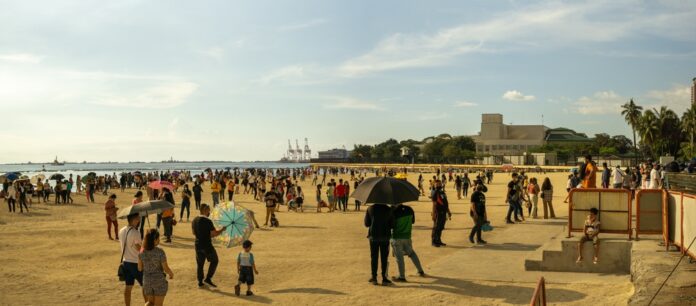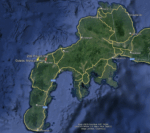A growing debate over the causes of severe flooding in Metro Manila has prompted the Department of Environment and Natural Resources (DENR) to urge for “science-based” evaluations, amid conflicting claims and ongoing urban development projects.
This comes in response to recent remarks by the Metropolitan Manila Development Authority (MMDA), which partly blamed the artificial dolomite beach along Manila Bay and the construction of the Metro Rail Transit Line 7 (MRT-7) for worsening floods in parts of Manila City. The DENR, while stopping short of confirming or rejecting MMDA’s assertions, emphasized the need for evidence-based analysis to inform public discourse and policymaking.
“Assessment of flooding causes must be rooted in science-based analysis,” the DENR said in a statement released Thursday. The agency highlighted that changing weather patterns—largely driven by climate change—have contributed to increased rainfall, overwhelming urban drainage systems.
“Over the past decade, meteorological data indicates a striking increase in rainfall volume, attributed to climate change. This noticeable shift has exacerbated urban flooding challenges,” the agency noted.
The DENR’s call reflects wider policy concerns: that debates over short-term infrastructure impacts must not overshadow the long-term climate trends and systemic urban planning deficiencies that contribute to persistent flooding.
The agency urged local government units (LGUs) to adopt comprehensive flood risk reduction measures, integrated into urban design and solid waste management strategies. These include:
- Upgrading drainage systems to accommodate heavier rainfall,
- Improving waste management to prevent clogged waterways,
- Engaging communities in flood preparedness initiatives, and
- Restoring ecosystems to enhance natural rainwater absorption.
“As we confront the challenges posed by climate change, it is essential to adapt our urban planning strategies to safeguard our communities,” the DENR said, affirming its support for partnerships with LGUs and civil society to build long-term resilience.
The ongoing debate reveals a broader tension between infrastructure development, environmental integrity, and the need for coordinated policy responses. As urban flooding worsens, calls are mounting for fact-based decision-making that balances immediate concerns with long-term environmental sustainability.







